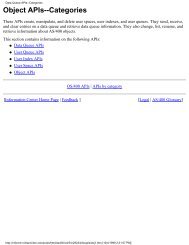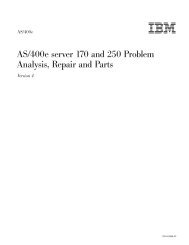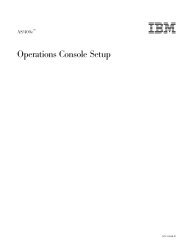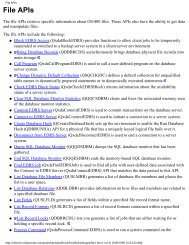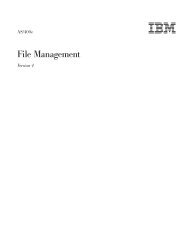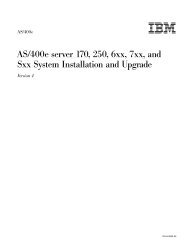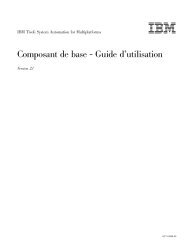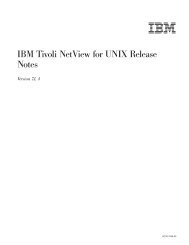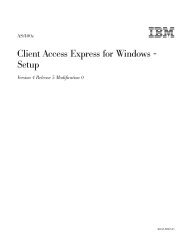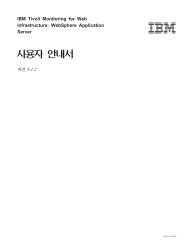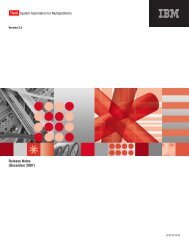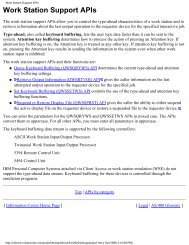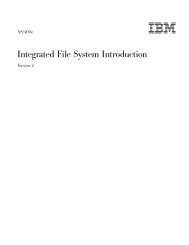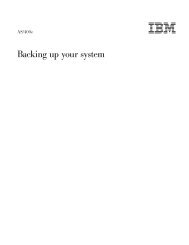Qshell Interpreter (qsh) - FTP Directory Listing - IBM
Qshell Interpreter (qsh) - FTP Directory Listing - IBM
Qshell Interpreter (qsh) - FTP Directory Listing - IBM
You also want an ePaper? Increase the reach of your titles
YUMPU automatically turns print PDFs into web optimized ePapers that Google loves.
Related Information<br />
Examples<br />
v basename - Return directory portion of path name<br />
1. Set the shell variable FOO to “/usr/bin”.<br />
FOO=$(dirname /usr/bin/trail)<br />
[ Legal | AS/400 Glossary ]<br />
find - search a file hierarchy<br />
Synopsis<br />
Description<br />
Options<br />
find [-H | -L | -P] [-Xdx] [-f file] Path-list [file ...] expression<br />
The find utility recursively descends the directory tree for each file listed, evaluating<br />
an expression (composed of the “primaries” and “operands” listed below) in terms of<br />
each file in the tree.<br />
-H Cause the file information and file type returned for each symbolic link<br />
specified on the command line to be those of the file referenced by the link,<br />
not the link itself. If the referenced file does not exist, the file information<br />
and type will be for the link itself. File information of all symbolic links not<br />
on the command line is that of the link itself.<br />
-L Cause the file information and file type returned for each symbolic link to be<br />
those of the file referenced by the link, not the link itself. If the referenced<br />
file does not exist, the file information and type will be for the link itself.<br />
-P Cause the file information and file type returned for each symbolic link to be<br />
those of the link itself.<br />
-X A modification to permit find to be safely used in conjunction with xargs. If<br />
a file name contains any of the delimiting characters used by xargs, a<br />
diagnostic message is displayed on standard error, and the file is skipped.<br />
The delimiting characters include single (’) and double (“) quotes, backslash<br />
(\), space, tab and newline characters.<br />
-d Cause find to perform a depth-first traversal, i.e. directories are visited in<br />
post-order and all entries in a directory will be acted on before the directory<br />
itself. By default, find visits directories in pre-order, i.e. before their<br />
contents. Note, the default is not a breadth-first traversal.<br />
-f Specify a file hierarchy for find to traverse. File hierarchies may also be<br />
specified as the operands immediately following the options.<br />
-x Prevent find from descending into directories that have a device number<br />
different than that of the file from which the descent began.<br />
Chapter 4. Utilities 53



